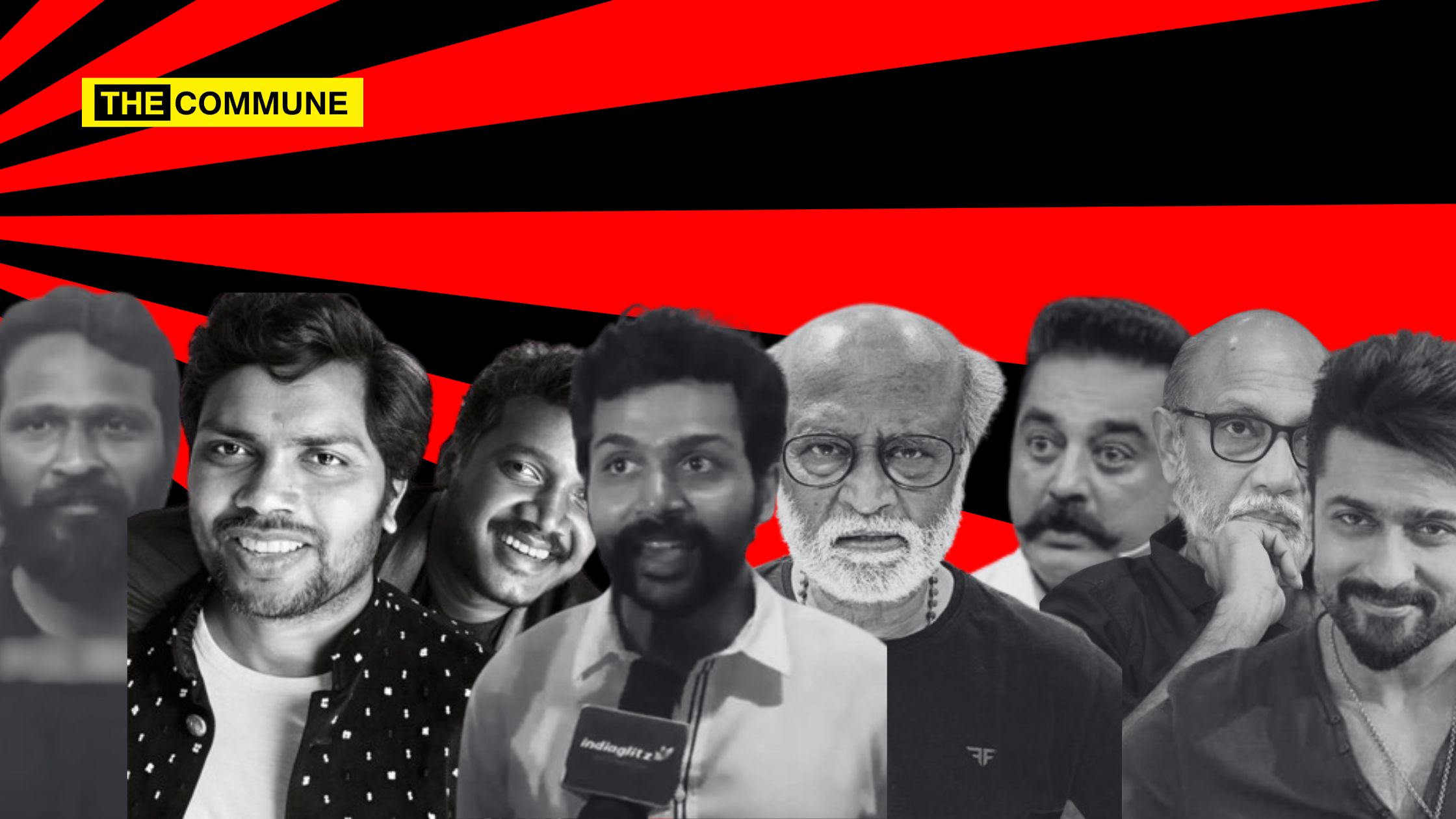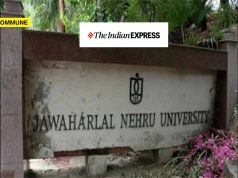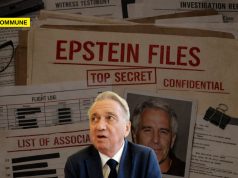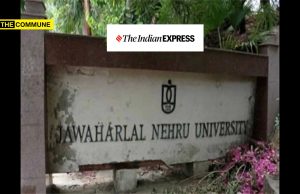
The ongoing DMK drug scandal has taken center stage for the last ten days, gaining extensive coverage on social media and news outlets. Yesterday, the alleged drug peddling mastermind, Jaffar Sadiq, was apprehended. Interestingly, during the previous ADMK government, even a minor hiccup would prompt Kollywood actors and directors to vociferously express their opinions through the media or their social media platforms, making the news sensational by sharply questioning the government. However, surprisingly, these self-proclaimed champions of virtue have been conspicuously silent under the current regime. The pertinent question arises: where are these outspoken voices now?
Prominent voices supporting the DMK, including actors Rajinikanth, Kamal Haasan, Suriya, Karthi, Sathyaraj, Director Vetrimaaran, Pa Ranjith, and Mari Selvaraj, have been gone missing.
Rajinikanth
Shivaji Rao Gaekwad, widely known as Rajinikanth, has consistently maintained a close association with the first family of DMK, displaying a notable silence on the current matter. The relationship between DMK and Rajinikanth has been marked by mutual support, with both sides consistently expressing well wishes and meeting each other. Notably, during the inauguration of the late Karunanidhi’s mausoleum, Rajinikanth was the singular representative from the film industry, highlighting his close ties with DMK. He referred to the mausoleum as “Wonderful, Charming,” emphasizing its significance as not just Kalaignar Samadhi but also likening it to Kalaignar Taj Mahal.
Rajini consistently remained indifferent to film reviews and refrained from endorsing movies. However, he took a special initiative for the film “Maamannan,” in which the film was written and directed by Mari Selvaraj a D-stock, starred and produced by Udhayanidhi Stalin of Red Giant Movies a DMK Scion. Rajini personally commended the team, stating, “A wonderful work by Mari Selvaraj emphasizing equality. My sincere appreciation to him. My congratulations to Vadivelu, Udhayanidhi and Bhagat Basil for their excellent performances.”
சமத்துவத்தை வலியுறுத்தும் மாரி செல்வராஜின் ஒரு அருமையான படைப்பு. அவருக்கு எனது மனமார்ந்த பாராட்டுகள். மிகச் சிறப்பாக நடித்திருக்கும் வடிவேலு, உதயநிதி, பகத் பாசில் ஆகியோருக்கு எனது வாழ்த்துகள்.
— Rajinikanth (@rajinikanth) July 4, 2023
Rajinikanth extending his wishes to the DMK and their families and reciprocating warm regards from them are detailed in the below posts.
தமிழக அமைச்சராகப் பதவியேற்றிருக்கும் அன்புத் தம்பி உதயநிதி ஸ்டாலின் அவர்களுக்கு என்னுடைய மனமார்ந்த வாழ்த்துகள்.@Udhaystalin
— Rajinikanth (@rajinikanth) December 14, 2022
தி.மு.க.வின் பொதுச்செயலாளராக ஏகமனதாக தேர்ந்தெடுக்கப்பட்டிருக்கும் மதிப்பிற்குரிய நண்பர் திரு துரைமுருகன் அவர்களுக்கும், பொருளாளராக தேர்ந்தெடுக்கப்பட்டிருக்கும் மதிப்பிற்குரிய நண்பர் திரு டி.ஆர். பாலு அவர்களுக்கும் எனது மனமார்ந்த வாழ்த்துகள்.
— Rajinikanth (@rajinikanth) September 3, 2020
வாழ்த்துகளுக்கு மிக்க நன்றி தளபதி அவர்களே.
உங்கள் நண்பன்,
ரஜினிகாந்த் https://t.co/D42axW84JK— Rajinikanth (@rajinikanth) December 12, 2018
Rajinikanth appears to have been more vocal on critical issues, especially social and political matters in Tamil Nadu, prior to 2020 rather than after 2021 (when the DMK came to power). During that time, he strongly commented on the custodial death case of the Santhankulam father-son duo, emphasizing the need for truth and justice with the hashtag #TruthfullyYouShouldNotLeaveThem. Simultaneously, he criticized the ADMK government, urging them to explore alternative revenue sources instead of relying on liquor (TASMAC) profits, or else forget about returning to power.
#சத்தியமா_விடவே_கூடாது pic.twitter.com/MLwTKg1x4a
— Rajinikanth (@rajinikanth) July 1, 2020
இந்த நேரத்தில் அரசு டாஸ்மாக் கடைகளை மறுபடி திறந்தால் மீண்டும் ஆட்சிக்கு வரும் கனவை மறந்து விட வேண்டும். தயவுகூர்ந்து #கஜானாவை_நிரப்ப_நல்ல_வழிகளை_பாருங்கள்
— Rajinikanth (@rajinikanth) May 10, 2020
Hasn’t Rajinikanth, the so-called social crusader, been informed about the recent drug prevalence news? Isn’t the rampant spread of drugs in Tamil Nadu a matter of concern for him? The same person who spoke out against TASMAC during the ADMK era – will he raise similar questions to his friend DMK’s Stalin or his brother Udhayanidhi Stalin? Will he inquire about the alleged connections between the DMK and the international drug kingpin Jaffar Sadiq, who previously served as the DMK Chennai NRI wing in charge? Strangely, there is utter silence on these issues.
Kamal Haasan
Kamal Haasan, a part-time politician, full-time actor, and the leader of Makkal Needhi Maiam, is known for addressing diverse social issues through advocacy in various interviews. However, his social media presence primarily revolves around sharing condolences or expressing concern specifically in cases of bus accidents or or similar tragedies. Interestingly, there seems to be a noticeable absence of awareness or commentary on events in Tamil Nadu, especially after the DMK assumed power.
குன்னூர் மலைச்சாலையில் நடந்திருக்கும் சுற்றுலாப் பேருந்து விபத்தில் எட்டுப் பேர் உயிரிழந்திருப்பது பெரும் வேதனையை ஏற்படுத்துகிறது. மேலும் பலர் காயமடைந்து சிகிச்சை பெற்று வருகின்றனர். அவர்கள் அதிக இழப்பின்றி விரைந்து குணமடைய வேண்டும். இறந்த சகோதர சகோதரிகளின் குடும்பங்களுக்கு என்…
— Kamal Haasan (@ikamalhaasan) October 1, 2023
தமிழக கர்நாடக எல்லை அருகே அத்திப்பள்ளி எனும் பகுதியில் இயங்கி வந்த பட்டாசுக்கடை வெடி விபத்தில் தமிழ்நாட்டைச் சேர்ந்த 14 பேர் உயிரிழந்த செய்தி அறிந்து மிகுந்த துயருற்றேன்.
பலியானவர்களின் குடும்பங்களுக்கு என் ஆழ்ந்த வேதனையைத் தெரிவிக்கிறேன். காயமுற்றோர் விரைந்து குணமடைய…
— Kamal Haasan (@ikamalhaasan) October 8, 2023
Even when he ventures beyond his comfort zone and criticizes his allies in power, the DMK, he does so with a distinctly harsh friendly tone, as exemplified by statements like this, “I welcome the announcement by the Chief Minister of Tamil Nadu that the action on the proposed 12-hour work in factories is being suspended. I appreciate Mr. Stalin emphasis on what is being said rather than who is saying it and respecting the reasonable opinions of the alternative side and the feelings of the people are the hallmarks of a healthy government. I request you to permanently cancel the notification of 12 hours work”
12 மணி நேர வேலை எனும் அறிவிப்பை நிரந்தரமாக ரத்து செய்ய ஆவன செய்யுமாறு கேட்டுக்கொள்கிறேன்.(3/3)
— Kamal Haasan (@ikamalhaasan) April 25, 2023
Just a mere four days ago, there was an unforeseen twist in events when Kamal Haasan issued a statement strongly condemning the drug issue in Tamil Nadu. He connected the problem to various instances across different states, surprising everyone.
Everyone, including his party members and supporters, believed that ‘Aandavar’ (a nickname given to Kamal Haasan) was making a strong comeback reminiscent of his impactful role in the movie “Vikram.” The anticipation was that Kamal Haasan would expose the drug syndicate, administer justice to those involved, and leverage the incident to gain political momentum, ultimately securing victory in the Lok Sabha election. However, as usual he aligned himself with the same party, DMK, which had a person linked to drug smuggling in charge of Chennai, all for the nomination of a mere single Rajya Sabha seat.
எங்கே போகிறோம்?
புதுச்சேரியில் 8 வயது சிறுமி கடத்திக் கொல்லப்பட்டு சாக்கடையில் வீசப்பட்டிருக்கிறாள். உலகின் பாதி நாடுகளைச் சுற்றிப் பார்த்துவிட்டு இந்தியாவிற்கு வந்த வெளிநாட்டுப் பெண்ணை ராஞ்சியில் ஒரு கும்பல் வன்புணர்வு செய்திருக்கிறது. மங்களூருவில் காதலிக்க மறுத்த பள்ளி…
— Kamal Haasan (@ikamalhaasan) March 6, 2024
In 2018 too he courageously established his own political party, dispelling notions of alignment with any particular group. Initially, his stance resonated as genuine, with occasional criticisms directed at both Dravidian parties as he positioned himself as a viable third front. However, he pledged his party and the trust of his supporters for the sake of securing a nominated MP seat in the Rajya Sabha.
His perspectives appeared ambiguous and indecisive, mirroring his dialogues in the movie where, when asked if he is good or bad, he responds with uncertainty. Much like a flock that initially strays but eventually returns to its nest, he executed various maneuvers only to align himself, in the end, with his parent’s party, the DMK.
சமூகநீதி, மகளிர் மேம்பாடு, இளைஞர் நலம், தொழில் வளர்ச்சி என தமிழ்நாட்டை வளர்ச்சிப் பாதையில் செலுத்தி வரும் எனது அன்பிற்கினிய நண்பர், திராவிட முன்னேற்றக் கழகத்தின் தலைவர், தமிழ்நாட்டின் முதல்வர், திரு @mkstalin அவர்கள் நீடூழி வாழ அவரது பிறந்தநாளில் வாழ்த்துகிறேன். @CMOTamilnadu pic.twitter.com/QKF8hyRI2M
— Kamal Haasan (@ikamalhaasan) March 1, 2024
தான் எடுத்துக்கொண்ட பொறுப்புகளில் குறுகிய காலத்திலேயே குறிப்பிடத்தக்க சாதனைகளைச் செய்து காட்டியவர் அன்புத் தம்பி @Udhaystalin
தமிழக அரசின் இளைஞர் நலன் மற்றும் விளையாட்டு மேம்பாட்டுத்துறை அமைச்சராகவும், திமுகவின் இளைஞரணிச் செயலாளராகவும் திறம்படச் செயலாற்றி வரும் தம்பி உதயநிதி… pic.twitter.com/zHNK0DR2Rg
— Kamal Haasan (@ikamalhaasan) November 27, 2023
Suriya & Karthi Sivakumar
Suriya Sivakumar, a strong supporter of the DMK, previously voiced his support for causes such as “Hindi Theriyadhu Poda,” anti-NEET advocacy, and condemned the Sathankulam custodial death during the ADMK regime. However, he is now noticeably silent. Notably, he didn’t speak out during the DMK regime concerning the Vengayvayal incident, and he remains silent even now regarding the drug busts taking place in various locations in Tamil Nadu. The question arises whether this silence reflects a deliberate choice or a decision to turn a blind eye to certain issues.
There’s not much to be said about Suriya SivaKumar or Karthi Sivakumar; they lack proficiency in both acting and storytelling. Suriya’s typical approach involves fostering social division, creating an upper-lower divide, and ultimately relying on a hero with a secular Dravidian ideology to rescue the situation, But karthi’s style diverges significantly from that of his brother, Suriya. Primarily he inclined towards comedy, Karthi tends to inject sarcasm into his roles, often overshadowing the entire script that leaves the audience frustrated, who paid 200 rupees to watch the film. It’s rather unfortunate, isn’t it?
Their survival hinges on a combination of nepotism and a complex caste background, with individuals who both belong to and perpetuate the same system often taking on roles as actors, producers, and directors within family. This is notably facilitated when the ruling government in Tamil Nadu is the DMK, as individuals associated with the Dravidian lineage tend to receive government awards. As an example, Jothika, the wife of Suriya, recently received an award from the Tamil Nadu government for her 2015 film “36 Vayathinile,” despite its perceived lack of substance. This movie, portrayed by Dravidian media as a pro-women empowerment film, raises questions about the criteria used for such accolades.
Sathyaraj
Sathyaraj, a well-known supporter of the DMK, attempted to deflect attention from the ongoing issues in Tamil Nadu by delivering a provocative speech just five days ago. Despite his efforts, the speech failed to gain viral attention. At a time when the state was buzzing with news of drug-related incidents linked to the DMK, Sathyaraj emerged unexpectedly to deliver a speech. In Tamil Nadu, all religions coexist harmoniously, and it would be foolish to exploit religious differences for political gains. Sathyaraj remarked that while there may be a religious storm brewing in the North, in Tamil Nadu, it is “Madappuyal” (Foolish storm). Further he expressed concerns about outsiders attempting to influence food (beef) choices, highlighting the danger in such trends.
A Raja and Sathya Raj tasked to create a diversion from another drug bust today.
DMK adopting age-old tactics – Iru kodugal. https://t.co/BGKPPIsy4M pic.twitter.com/uETDdQOiCG
— Aravindwrites🇮🇳🇸🇬 (@Aravindwrites08) March 5, 2024
Director Vetrimaaran, Pa Ranjith, Mari Selvaraj
Finally, three directors with distinct filmmaking styles appear to converge on a shared objective: promoting the Dravidian ideology, deriding structured Hindu beliefs, tarnishing the image of Brahmins, and unwaveringly supporting the DMK under all circumstances. Mari Selvaraj and Vetrimaaran subtly infuse their political ideologies into their films, while Pa. Ranjith, lacking the same finesse, occasionally expresses his political views in moments of anger, leading to scrutiny and trolling by netizens.
It is noteworthy that Vetrimaaran himself has been seen to be closely associated with Ameer and the druglord Jaffer Sadiq.
At present, amidst the ongoing drug busts in Tamil Nadu, it’s likely that the trio is contemplating the creation of a high-budget film centered around the themes of gangsters, guns, and drugs with the backing of the DMK or they might be deliberately distancing themselves from the drug issue altogether.
Subscribe to our channels on Telegram and WhatsApp and get the best stories of the day delivered to you personally.




